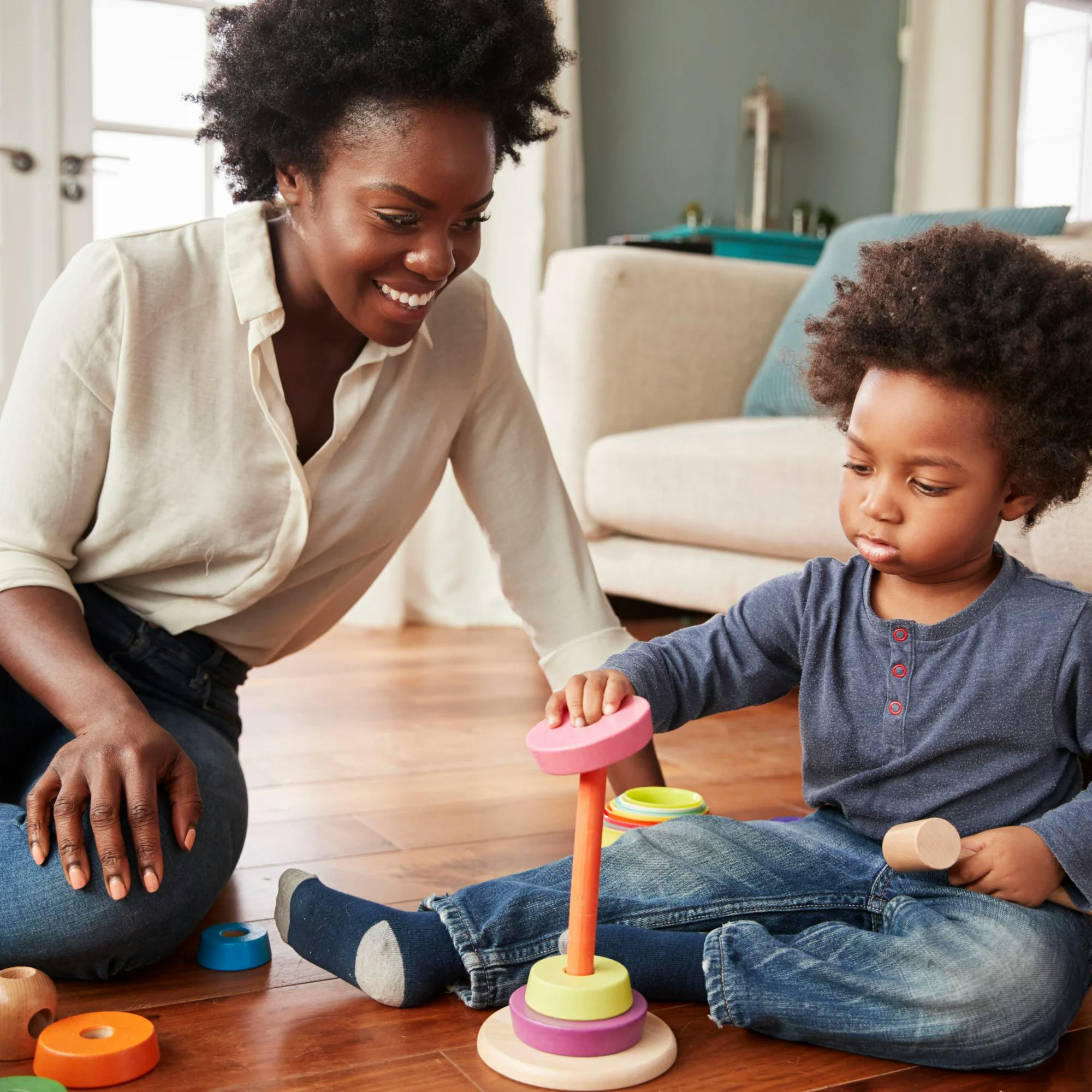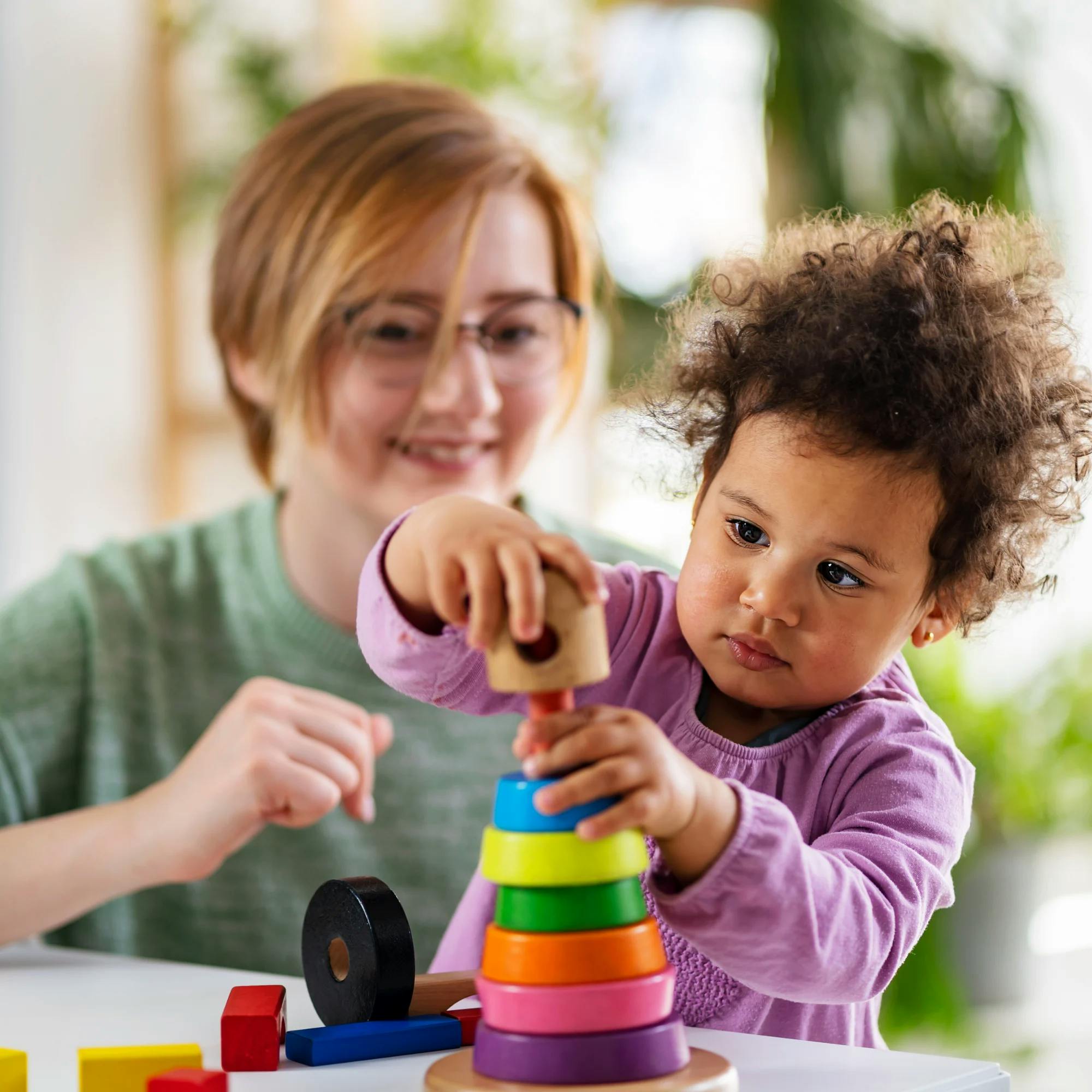The signs of a social communication disorder may seem similar to characteristics of autism. But are they one in the same? The short answer is no, although there is some overlap between these two conditions.
In this article, we explain what a social communication disorder is, how a social communication disorder compares to autism, and how speech therapy can help.
What is a social communication disorder?
With a social communication disorder, a person has trouble using verbal and nonverbal language for social purposes. This can make it challenging to hold a conversation, and it can affect how the person forms and maintains social relationships.
While this disorder often appears in early childhood, the signs of a social communication disorder aren’t always obvious at first. However, they can become more apparent as a child gets older and enters more complex social environments, like playing with other children or working in groups at school.
Teens and adults, as well, may become aware of challenges they’re having in certain social situations.


What are the symptoms of a social communication disorder?
Social communication issues can cause concerns for parents of young kids, and they can be stressful for teens and adults. Let’s look at some signs of a social communication disorder.
Social skills vary by age and stage of development. There are some key aspects that caregivers should watch for to determine if their child is on track. There are also skills that teens and adults can look for in themselves.
Here are the social skills that may be difficult for someone with a social communication delay or disorder:
Using appropriate communication when socializing: Greeting others and smiling, maintaining eye contact, pointing to draw someone’s attention to an object, starting or entering a conversation, responding when asked a question
Changing communication style depending on setting and partner: Speaking differently to children and adults; understanding the conventions of formal and casual situations, such as a classroom versus a birthday party
Following social rules: Not interrupting, engaging in the typical back-and-forth of a conversation, staying on topic
Understanding verbal and nonverbal cues: Interpreting signals from conversation partners (for example, if someone’s eyes are wandering, they could be bored; if someone’s eyes are welling up, they’re sad)
Understanding ambiguous or figurative language: Ability to comprehend information when it's not clearly stated (also called inferring), understanding sarcasm or figures of speech
Each person will differ in terms of what’s challenging for them and what they want to focus on improving.


Does a social communication disorder mean autism?
Many people wonder if a social communication delay or disorder is different from autism. Are the two conditions related?
Social communication disorders share some characteristics of autism spectrum disorder (ASD). However, there are important distinctions.
Both disorders involve difficulties with social communication skills. However, autistic people have other symptoms that affect social interactions, such as limited interests and/or repetitive or compulsive behaviors.
For example, autistic children and adults may become upset with interruptions to their daily routines. They may become hyper-focused on a specific topic while being uninterested in others. They may have repetitive behaviors like lining up toys or tapping their finger, or be extremely sensitive to certain sounds and textures.
Children with a social communication disorder only have challenges related to their social skills. In comparison, social communication challenges are only one component of autism.

How are social communication disorders treated?
Speech therapy can help people with social communication disorders set goals, practice pragmatic skills, and learn how to use their new skills with their family, friends, and people they meet.
Speech therapy can focus on a variety of communication skills. Here are some goals that may be addressed in speech therapy for social communication:
Nonverbal communication, such as body language, facial expressions, and tone of voice
Carrying on conversations, making comments, asking questions, staying on topic, and introducing new topics
Introducing yourself
Asking for clarification or help
Problem solving in social settings, such as at school, work, or other situations
If you think your child may have problems with social communication, you may want to speak with your pediatrician. You can also reach out directly to a speech therapist. They can answer your initial questions and help determine if a speech and language evaluation would be helpful for your child.
There is no one “right” way to communicate, and no one should be forced to communicate in a certain way.
When teens and adults are seeking therapy for a social communication disorder, it’s important for them to be included in the goal-setting process. There is no one “right” way to communicate, and no one should be forced to communicate in a certain way. For example, if eye contact is uncomfortable for someone, and they don’t want to focus on it, this does not need to be a therapy goal.
The speech therapist will work with the person to understand their challenges and what kind of support they want. Let's say someone is having trouble maintaining conversations at work, or is unsure how to introduce new topics when talking with peers. The speech therapist will provide techniques and strategies that can help the person grow in this area, and show them how to practice at home and in everyday life.
No matter the individual goals for social communication, a speech therapist can help you or your child learn to communicate as effectively, authentically, and comfortably as possible.
How Expressable Can Help
Concerned your child isn't reaching age-expected milestones? Looking for communication support from a professional? Expressable is a national online speech therapy practice serving children and adults. We treat all major areas of communication and feeding, offer flexible hours including evenings and weekends, and accept most major health insurance plans. We’re proud to have earned more than 3,000 5-star reviews from our clients (4.9/5 average).
Our therapy model is centered on parent and caregiver involvement. Research proves that empowering caregivers to participate in their loved one’s therapy leads to better outcomes. That’s why we combine live, 1-on-1 speech therapy with personalized education and home practice activities for faster progress.
Communication is more than words. It’s how we share how we feel and show who we are. We’re here to help you or your child do just that.

 Abby Barnes, M.S., CCC-SLP
Abby Barnes, M.S., CCC-SLP












